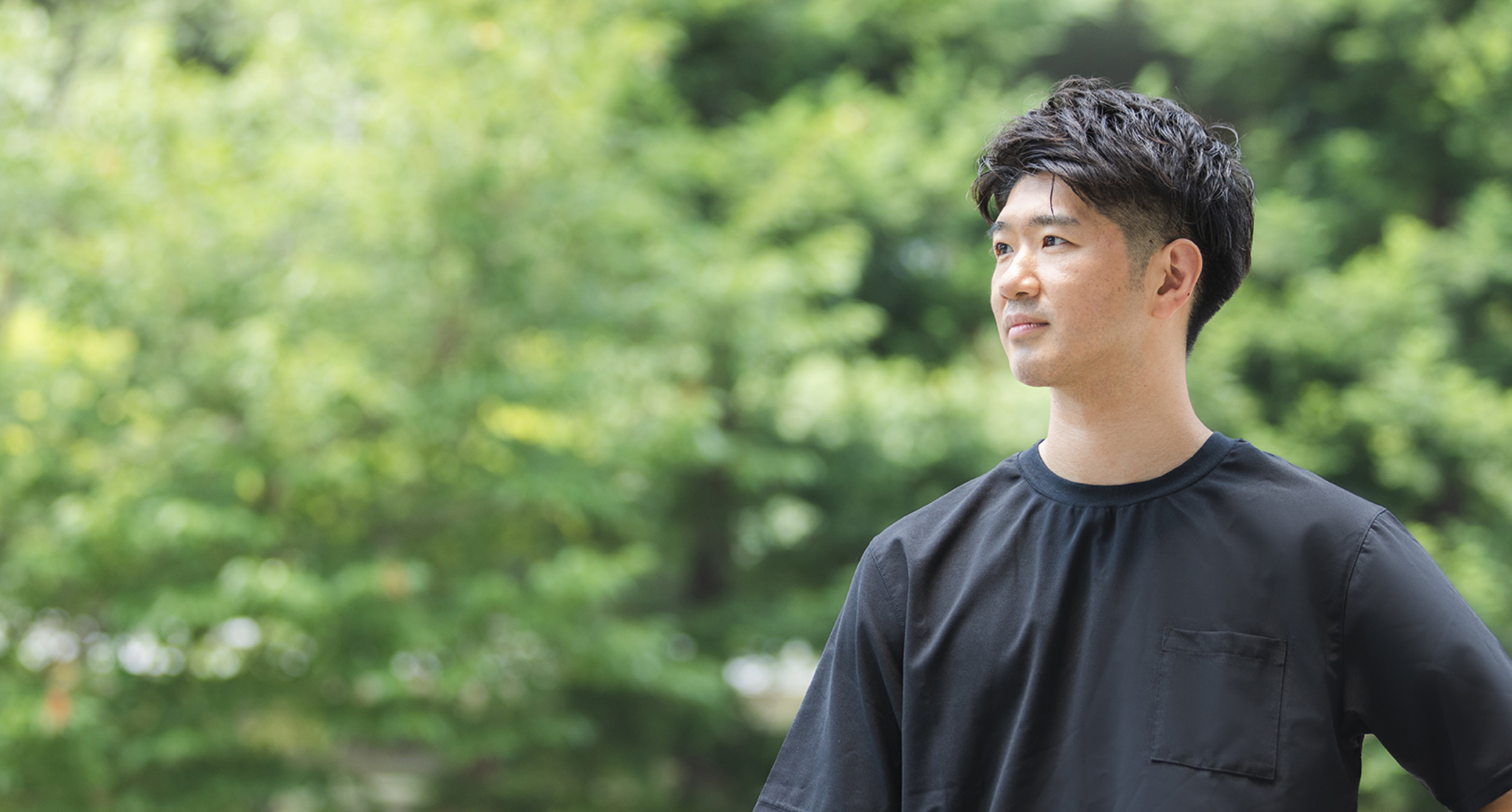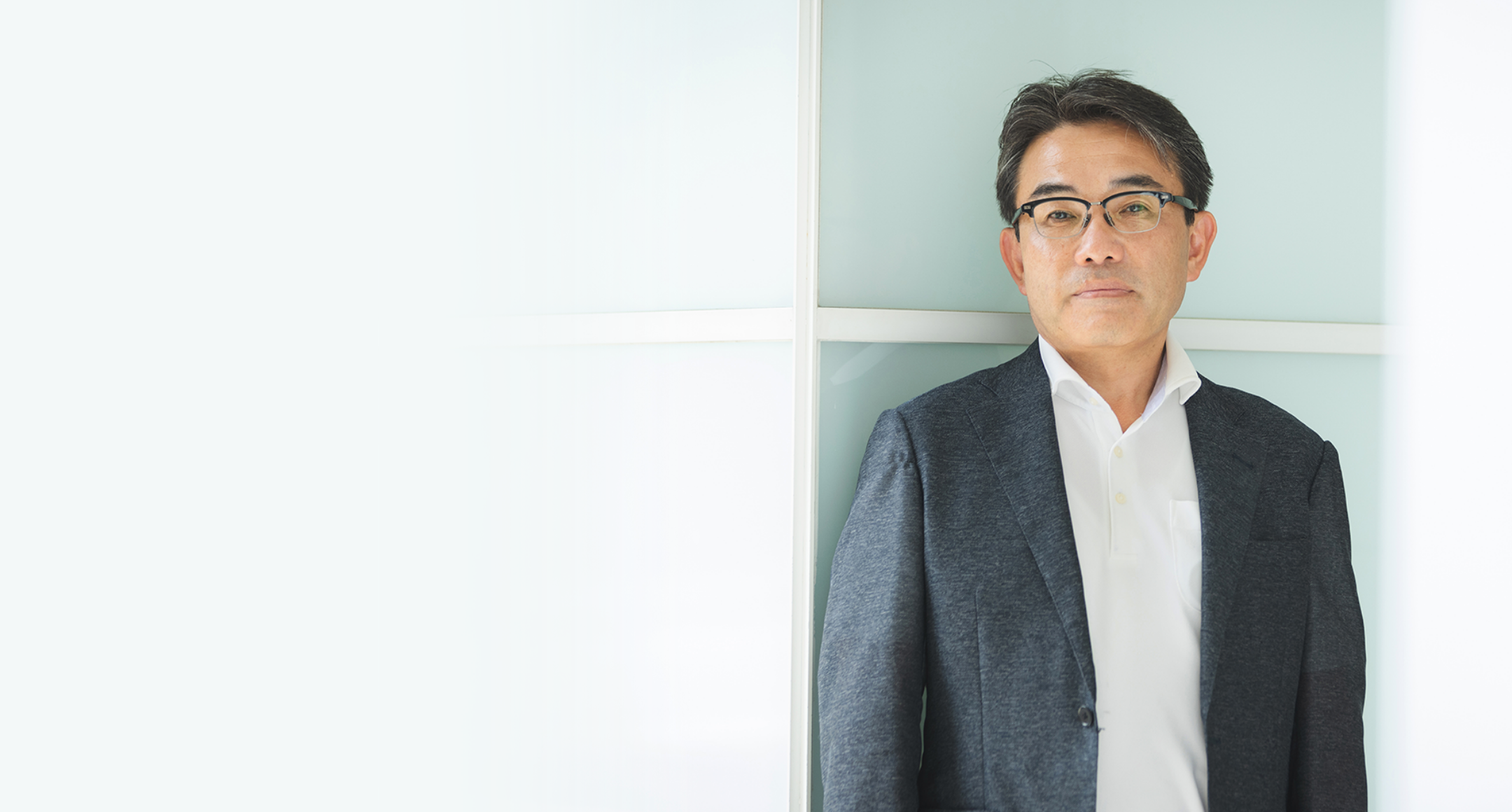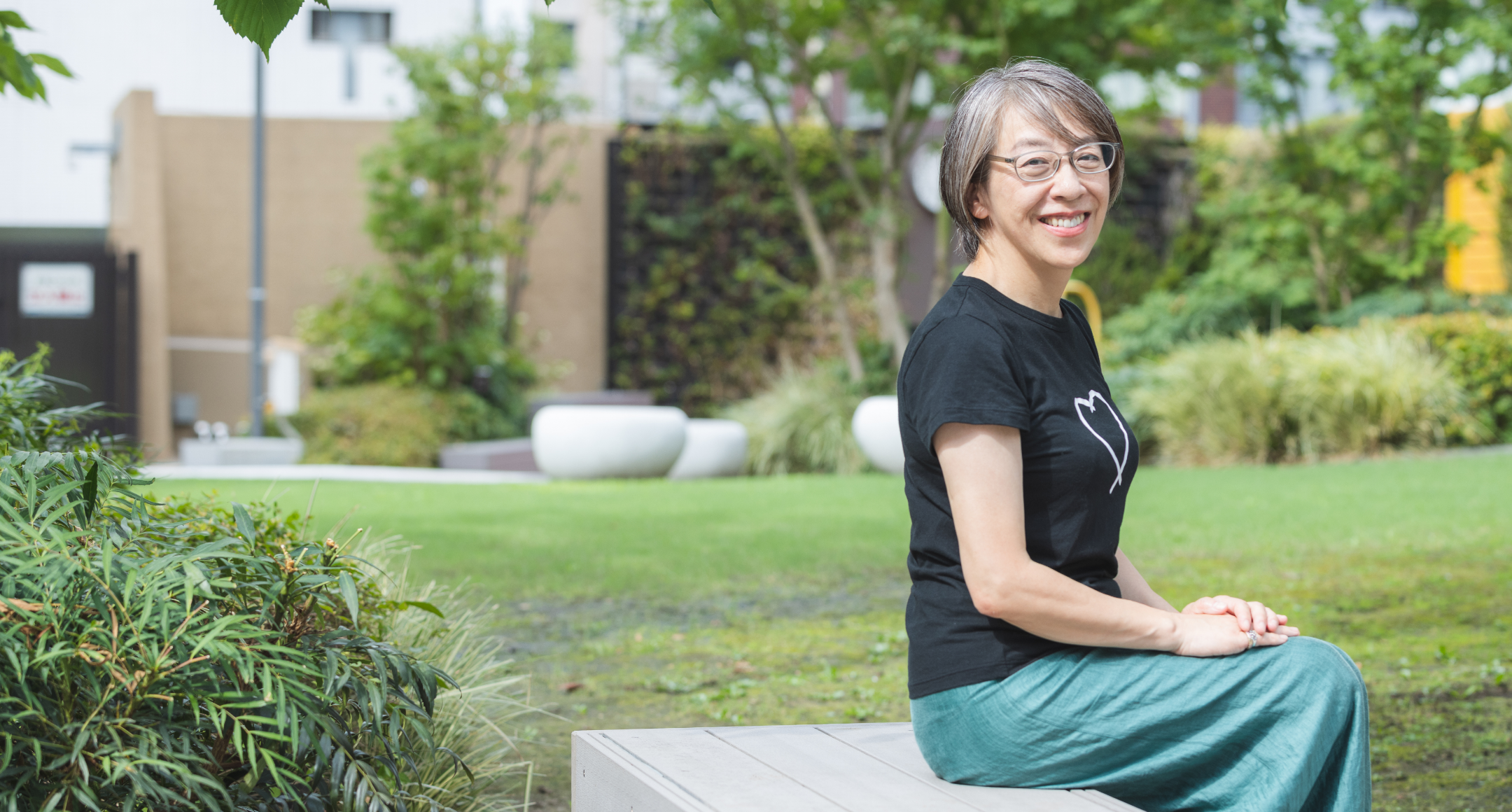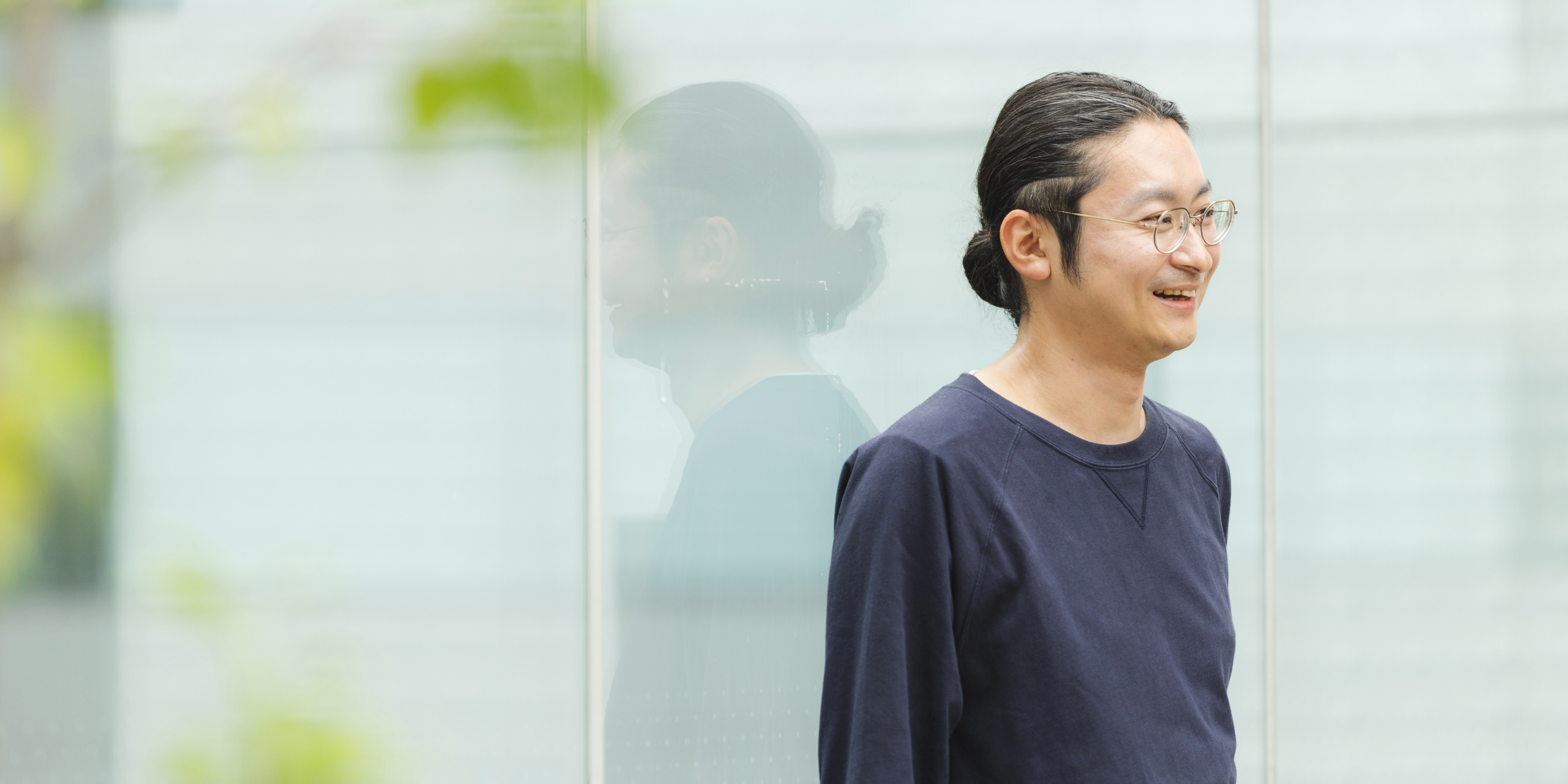
A Company Where Each and Every Employee Can Work More Freely and Pursue Their Visions
-
Takahiro Kabuki
- Director and Chief Strategy Officer
and Chief Financial Officer
Joined this company in 2013 after working in corporate planning for a business company, where he was involved in finance and accounting and property acquisition. Left this company once in 2016 and rejoined in 2019, again after working in corporate planning for a business company. Currently engaged in disclosure, investor relations, corporate administration, and finance and accounting operations.
Finding his Own Way of Working after Taking a 5-year Leave of Absence from University and Returning to Work
I understand that you came back to the company as a job returnee.
That's right. If I may briefly explain my career to date, I joined a semi-private company as a new graduate. In fact, I had taken a long leave of absence during my college years to devote myself to music. After winning a certain contest, I received an offer from an artist management office, which gave me the momentum to try to become a professional. Even so, it was a tough world, so I could not make way in the band, and as a result, after completing university after a total of 9 years, I decided to follow the normal course and got a job. I was a new graduate employee, but I was 27 years old (laughs). After that, I changed jobs within the company and stayed for about three years, but resigned and started working at a manufacturer, and then returned to work at this company again, where I am currently employed. Although at one stage I was looking after finance and acquisitions at this company, I can say that the core of my career has been in the area of corporate planning and business administration.
I currently belong to the Corporate Planning Division, where I am in charge of corporate functions such as human resources, general affairs, and information systems, as well as disclosure and investor relations operations that communicate with REIT investors.
So, you took a leave of absence from university to pursue your music career?
Yes, it embarrasses me now (laughs), but it was a very good experience for me. Although I got off to a late start in the working world, I think I was able to experience many things that I would not have been able to experience through the normal college graduate to job route, which helped me develop the flexibility to explore how to do a "good job" in an essential way while incorporating the wonderful opinions of those around me, without being bound by common sense or playing by the book. In addition, for me, "working as a member of society" is not something I take for granted; it is a path that I chose for myself, so I do not see it as just a way to make money, but am strongly conscious of the intrinsic value of working for society, employees, and myself. This is why I am highly motivated and enjoy working on a daily basis.
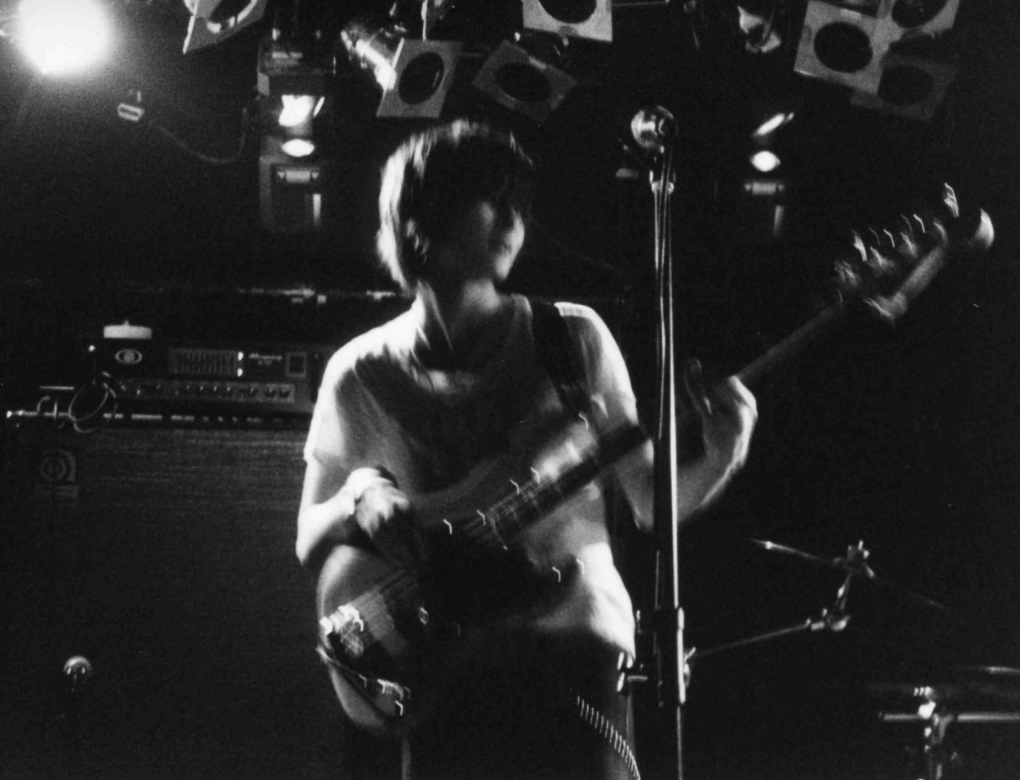 Mr Kabuki during the period when he took a leave of absence from university to devote himself to his musical activities
Mr Kabuki during the period when he took a leave of absence from university to devote himself to his musical activitiesThe Scene Upon Returning
After returning to work, how did you find the corporate culture here?
The reason I returned was because I was not satisfied with my earlier workplace. Although my previous job had a flat environment where it was easy to express my opinions, as always in large organizations, it was necessary to hold many meetings before a decision was made, and individual discretion was also limited. When I looked at the person above me, I felt that even he was simply one cog in a large organization. I felt that even as only a person looking after a certain area, the way that I had worked at Hoshino Resort Asset Management, I had more freedom and discretion.
I returned to the company after realizing that I was looking for a work environment where I could push forward toward my vision, always questioning its essential significance, without being bound by formality. These elements are part of this company’s corporate culture. One example is where it is not about who said it, but about what was said. We have an environment where people can express their opinions and are listened to regardless of their career, gender, or age. In addition, although you must have some skills, you can work independently and with discretion rather than being managed in detail. Another example is that you are encouraged not to spend too much time preparing materials for internal explanations, but to promote work with a sense of speed, even if it means verbal explanations in some cases. And the company does make decisions quickly. I believe that we do not get a sense of accomplishment by doing "work for work's sake," but rather by facing and acting on work that is truly valuable to investors and stakeholders, and by actually making a difference.
Finally, I would like to add that I do myself like traveling and hotels, so I can work without feeling too much of a barrier between my hobby and my job (laughs).
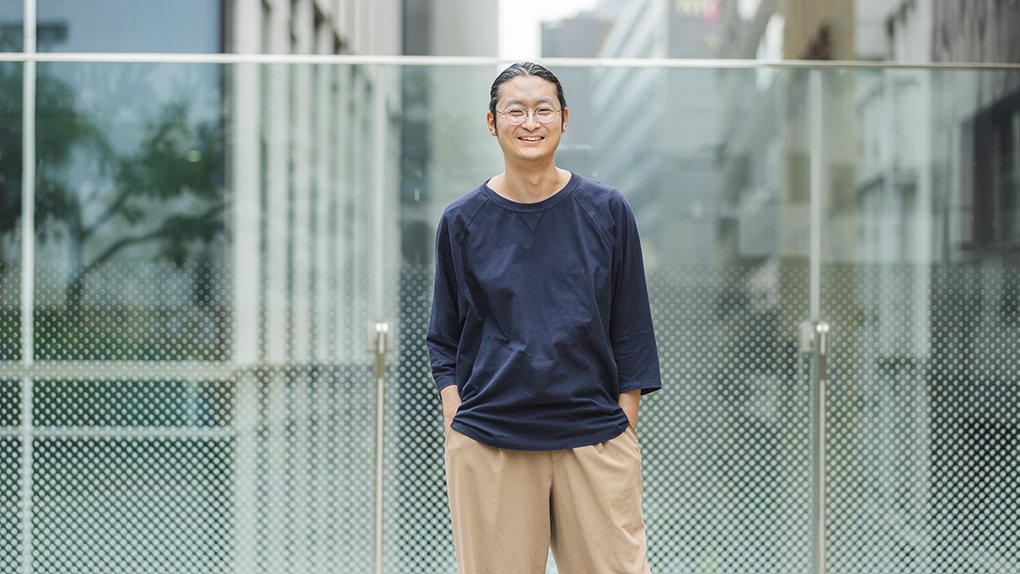
Wanting to Create a Company that Allows People to Work Freely Even Within a Financial Framework
Wanting to Create a Company that Allows People to Work Freely Even Within a Financial Framework
Firstly, the tourism industry is a highly promising sector in Japan's growth, but labor productivity in the tourism industry in Japan is still low, and many issues remain, such as retaining human resources and increasing added value. It is not difficult to imagine that even if we expand the scale of our business as it is now, it will become even more difficult to secure a workforce as Japan enters a phase of declining population. Because of the potential for growth industries in a wide range of regions, we believe that it will be difficult to establish our country as a tourism destination unless we offer truly valuable tourism and hotels and are more serious about improving labor productivity than they are now. For this, I believe that what is expected of us is to change the conventional wisdom of labor productivity in the tourism industry and become a role model in the Japanese accommodation and tourism industry. To this end, I would like to work with our sponsors to strive for value-added improvements that are unique to Hoshino, and to be able to deliver services and experiences of even greater value.
In addition, in order for us as an asset management company to move toward solving the major issue of improving labor productivity in the tourism industry, it is important to enhance teamwork, where each and every employee thinks and acts autonomously. As the amount of operations has grown, the size of the organization has also grown proportionally, but we believe that we can still free up the organization more to further maximize the abilities of our diverse human resources. In the process of an organization getting bigger, the number of internal rules tends to increase in order to maintain order. Excessive rules can hinder each person's freedom, which can have an unintended negative impact on the organization. Our goal is not to have detailed rules, but to have each person think maturely for the vision and the team, so that we can maintain order as an organization while at the same time ensuring the freedom of our employees. As a result of all of us sincerely considering the contribution we can make to our clients and society, we believe that we will be able to find a way of being an organization that can operate more freely, even with the strict rules, such as legislation, that come with being in the real estate finance business.
Is there anything you would like to try in the future?
Based on this organizational structure, I want to build good relationships with investors and enhance corporate value through IR activities and disclosure documents. To this end, I believe that my mission is to fulfill the company’s accountability to investors and stakeholders, and so I am working on this every day. I am strongly conscious of transparent disclosure that does not hide the "challenges" as well as the positive aspects of the business so that the stakeholders can fully understand the status of our business. Also, our sponsor, Hoshino Resorts, is a company with whom I have a lot to talk about on a daily basis, and I often receive compliments about our disclosure materials, as many of our properties are very photogenic. However, considering that Hoshino Resorts’ culture, or the "distinction of Hoshino Resorts" is what makes its properties attractive, captivates many people, and is the source of our company’s REIT cash flow, I believe that our disclosure and IR activities should also be more focused on this "distinction of Hoshino Resorts REIT." There are still many aspects of the REIT industry that are still stuck in conventional wisdom, so I would like each and every one of us to think outside the box to further enhance corporate value, and I would like the entire team to make bold disclosure and investor relations efforts.
Youth Interview
The interviewer is Mr Harada, a first-year employee who belongs to the same Corporate Planning Division as Mr Kabuki. He asks about various subjects hard to talk about in the workplace, such as from private life, as well as past setbacks.

Harada: You always work calmly and accurately, and speak logically and clearly no matter what I ask. Do you have some ideas on this?
Kabuki: The reason it looks that way may have something to do with my studying mathematics in the past (laughs). I guess it has become ingrained in my personality, and I have a tendency to not be convinced unless I know the logic and basis behind things. I'm just not very good at using information as it is given to me, and I want to look up the main evidence and rationale for everything. Mathematically speaking, we need to see the proof of a theorem to be convinced of its validity, rather than just taking a theorem and using it. So when I was younger, I often started my work slower than others, but now, thanks to the accumulation of this style, I may be able to explain things logically from the ground up, rather than just superficial facts.
Harada: We caught a glimpse of your private side when you talked about your musical activities. What do you do on your days off?
Kabuki: I have a personality that requires a firm on-off switch to sustainably work hard, so on my days off I often forget about work altogether and spend time with my family. My child is learning to play soccer, so we practice together and go out to watch games, and I am friends with the parents of my son's classmates through this relationship, so we all get together and play together along with our children. I also participate in local festivals in the summer and go snowboarding in the winter.
Harada: Tell us about your most memorable work-related setback so far.
Kabuki: Talking about the barriers I am feeling right now, it is difficult to find the optimal solution for what should be done for a "good workplace," and I am sort of groping in the dark at the moment. This is probably because it is connected to all kinds of functions, from recruitment to training, placement, and evaluation. We immediately try areas that can be improved, but it is not enough to solve one problem, but rather an issue that we need to look at from a bird's eye view and think about more precisely. In the area of organizational development, we have no choice but to struggle to come up with our own answers, since the best practices of other companies do not apply exactly as they would do for us. It is our mission now to work through this, and it is quite a wall. I believe that depending on your position and age, there will be barriers to overcome, but I am still trying to see what barriers I need to overcome for me now, and I am still in the process of trial and error.
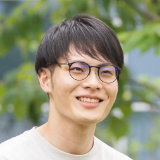
- Mr Harada
- Disclosure & IR,
Corporate Planning & Administration Department
Youth Profile
Currently in first year with the company. In previous position at a major bank, worked in corporate sales. Currently working with Mr Kabuki in disclosure and IR operations, with which had no previous experience.
